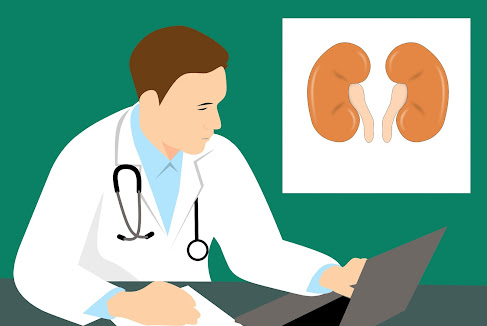5 Foods for People with Kidney Disease If you have kidney disease, you may have to change the types of food you eat in order to keep your kidneys healthy and functioning properly. Although changing your diet isn’t easy, it’s necessary in order to prolong your life by avoiding further damage to your kidneys, which can lead to serious complications and even death. The following five foods are great choices for people with kidney disease since they’re good sources of nutrients that support your health and well-being and don’t do any additional harm to your kidneys

1) Introduction
Kidney disease affects millions of people worldwide, and proper nutrition is a key factor in maintaining good health. But what foods should people with kidney disease focus on eating? Luckily, there are plenty of delicious and nutritious foods for people with kidney disease that can help support their overall health. In this blog post, we’ll be discussing five great foods for people with kidney disease. From fruits and vegetables to grains and legumes, these healthy foods can help you manage your kidney disease and lead an active life. So let’s get started and explore the best foods for people with kidney disease! - Leafy green vegetables: One of the most important things for kidney patients to avoid is dehydration, which leafy green vegetables help prevent. Many kidney patients also have problems with vitamin B12 absorption, but leafy greens have tons of it! - Fish: Fish like salmon are rich in potassium and magnesium—essential nutrients when dealing with kidney disease. They're also high in protein, so they make a great replacement for meat sources when trying to cut back on red meat consumption. - Nuts: Nuts like almonds or walnuts are packed full of potassium—and because nuts don't need much preparation time, they're perfect for people who don't want to cook very often. They're also full of heart-healthy fats like omega 3s which helps protect against heart disease. Plus nuts are pretty low-calorie if you go easy on them too!
2) Dark Leafy Greens
When it comes to foods for people with kidney disease, dark leafy greens are an essential part of a balanced diet. These nutrient-rich vegetables contain a number of health benefits that are particularly beneficial for those living with kidney disease. Dark leafy greens such as kale, spinach, and Swiss chard are packed with vitamins, minerals, and fiber. They’re also low in potassium, which is important for those with kidney disease since high potassium levels can be dangerous. Additionally, dark leafy greens are a great source of antioxidants and anti-inflammatory compounds, which can help improve kidney function and reduce the risk of complications associated with kidney disease. When it comes to preparing dark leafy greens, there are plenty of delicious options. Try steaming, sautéing, or adding them to soups and stews for added flavor and nutrition.
3) Fish
Fish is an excellent source of lean protein and a beneficial food for people with kidney disease. Eating fish can help reduce the risk of heart and vascular diseases, which are often linked to chronic kidney disease. Fish is also low in phosphorus, which is a mineral that can cause health problems when there are too much of it in the bloodstream. Eating fish, such as salmon and tuna, can be a good way to get high-quality protein without increasing the amount of phosphorus in your diet. Additionally, some types of fish, like trout, are high in omega-3 fatty acids, which can help reduce inflammation and improve overall health. If you have kidney disease, it's important to talk to your doctor about how much fish you should eat and which types are best for you. Some types of fish contain more mercury than others and might not be safe for people with kidney disease. For example, tuna contains more mercury than most other kinds of fish, so limit consumption or avoid it if possible. Most healthy adults can safely eat 12 ounces (340 grams) per week of canned albacore tuna or two 6 ounce cans per week (170 grams). Limit consumption or avoid shrimp if possible because it is higher in arsenic than other seafoods. It's also worth noting that many other foods besides seafood are sources of high-quality protein: eggs, beans and peas, nuts and seeds, lentils, chickpeas
4) Berries
Berries are a great food for people with kidney disease. They are full of vitamins, minerals, and antioxidants that help fight off free radicals and protect cells from damage. Berries also contain potassium, which is an essential mineral for people with kidney disease as it helps to regulate fluid balance and maintain healthy blood pressure. Additionally, eating berries can help lower cholesterol levels, reduce inflammation, and improve digestion in those with kidney disease. Eating a variety of different berries each week is a great way to get the most out of their health benefits and keep your kidneys healthy.
5) Cauliflower
Cauliflower is a great food for people with kidney disease. It is packed with essential vitamins and minerals, including potassium and phosphorus. Cauliflower is also low in sodium, which is beneficial for those with kidney disease because it helps keep the levels of sodium and fluid in the body balanced. Cauliflower is also a good source of dietary fiber, which helps to reduce cholesterol levels and stabilize blood sugar levels. For those with kidney disease, cauliflower can be steamed, mashed, or roasted to add flavor to meals without adding too much salt. Additionally, cauliflower can also be eaten raw as a crunchy snack.